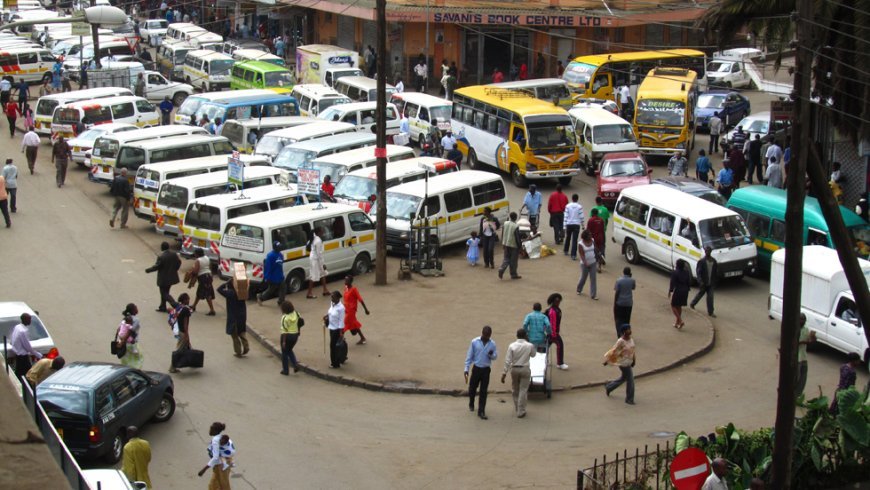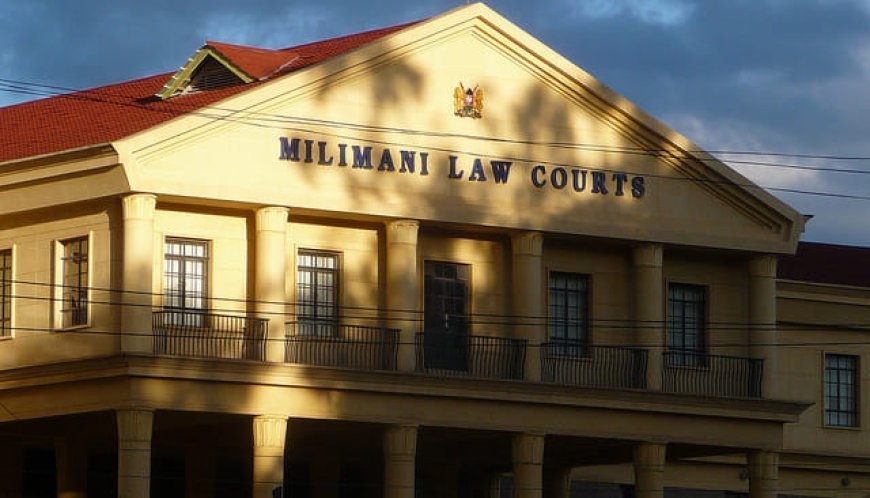Nairobi Matatus Saved From Eviction After High Court Ruling
This means the SACCOs can continue their operations across various petrol stations in Nairobi until the court hears and determines their petition challenging the eviction notice.

The High Court has granted temporary relief to 13 matatu SACCOs operating from petrol stations in Nairobi, halting a move by the Energy and Petroleum Regulatory Authority (EPRA) to evict them.
This means the SACCOs can continue their operations across various petrol stations in Nairobi until the court hears and determines their petition challenging the eviction notice.
Danstan Omari, the SACCOs’ lawyer, said that eviction could “throw the industry into confusion, disrupt business, and threaten the livelihoods of thousands who rely on the stations as critical pick-up and drop-off points.”
The matatus had filed the petition after receiving eviction notices from EPRA and the Nairobi County government.

The Milimani Law Courts in Nairobi. /FILE
After the ruling by High Court Justice Chacha Mwita, Omari said they sought urgent relief after learning the county intended to evict them on November 19.
He explained: “My clients who are members of the matatu industry, both employees and matatu owners, got summons for eviction from where they are operating in petrol stations. Those summons came from EPRA and told them to vacate with immediate effect.”
He added, “Aggrieved with that, we filed a petition, suing specifically EPRA and the Nairobi County Government, and the Attorney General. Directives were issued, and we appeared before Justice Chacha Mwita today.”
The court also instructed legal teams representing EPRA, the county government, the petrol stations, and the SACCOs to meet within seven days to resolve the issue and prevent a potential crisis if evictions proceed. Omari said they plan to request that this meeting happen as early as Thursday, November 20.
Any resolutions from the meeting will be presented to the High Court when the case is reviewed on December 1.
Earlier, on November 17, the matatu companies had threatened to halt operations, citing alleged intimidation by EPRA and the Nairobi County government, and had approached the High Court seeking urgent orders to prevent enforcement of a ban on passenger pick-ups and drop-offs at Nairobi CBD petrol stations.
The 13 matatu companies included ENA Coach, Easy Coach, Mololine, North Rift, GTS Supreme Sacco, Nenus Shuttle, Transline Classic, Prestige Limited, Kangema Sacco, and Super Premium T&T. They cautioned that the eviction directive would cripple their operations and severely disrupt vital public transport services.
In their certificate of urgency, the operators described the orders as abrupt, procedurally flawed, and economically damaging. They highlighted that enforcing the ban during the busy festive season could leave thousands of passengers stranded, relying on both long-distance and shuttle services.
The companies noted that there had been no documented incidents showing that their operations at Nairobi petrol stations had endangered public safety, while similar services elsewhere in Kenya continued without restrictions.
Through lawyers Stanley Kinyanjui and Danstan Omari, the petitioners questioned why Nairobi commuters were being singled out compared to the rest of the country.
In their court filing, the transport firms sought urgent intervention to prevent irreparable harm, abrupt shutdowns, and major financial losses.
The legal team urged the High Court to prioritize the case, warning that any delay in issuing protective orders would render their petition meaningless.







